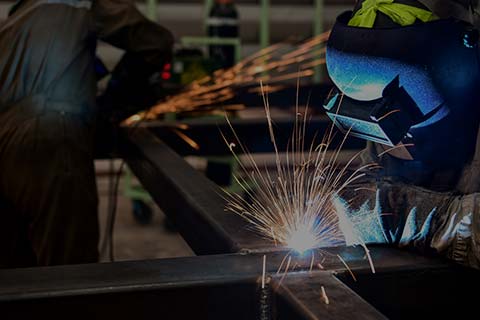In today's modern world, the need for welding doesn't always align with the availability of a reliable power source. However, with the advent of welder generators, welders now have the flexibility to work off the grid. Welder generators combine the capabilities of a welding machine with a power generator, providing a self-sufficient solution for welding in remote locations or during power outages. In this blog post, we will explore the benefits and practical applications of off the grid welding using welder generators.
-
What are Welder Generators? A welder generator is a versatile piece of equipment that integrates a welding power source and a generator into a single machine. It typically operates on gasoline or diesel fuel and can generate both electrical power for welding and additional power for running other tools or equipment. Welder generators come in various power outputs, allowing welders to choose a suitable option based on their specific needs and welding requirements.
-
Benefits of Off the Grid Welding: a) Portability: Welder generators are designed with portability in mind. They are compact, easy to transport, and often equipped with sturdy handles or wheels for convenient maneuverability. This portability enables welders to reach remote locations, job sites without power access, or areas where grid power may be unreliable or unavailable.
b) Versatility: Welder generators offer versatility in terms of welding processes and materials. They support various welding techniques such as MIG (Metal Inert Gas), TIG (Tungsten Inert Gas), and Stick welding, allowing welders to work with different metals and achieve high-quality welds. Whether you need to weld mild steel, stainless steel, aluminum, or other metals, a welder generator can handle the job.
c) Self-Sufficiency: By harnessing the power of a welder generator, welders become self-sufficient and no longer rely on grid power. This independence allows for increased flexibility in project timelines and locations. Welders can work in remote areas, construction sites, farms, or any other off-grid location without the limitations of power availability.
d) Emergency Preparedness: Welder generators serve as a reliable backup power source during power outages or natural disasters. In situations where grid power is disrupted, welder generators can power essential equipment, including welders, lights, and other tools, ensuring continuity of critical welding projects or repairs.
- Practical Applications of Off the Grid Welding: a) Construction and Infrastructure Development: Welder generators are widely used in construction projects, particularly in remote or newly developing areas. They enable welding for structural steelwork, fabrication, and repairs, even in locations without access to electrical infrastructure. Welder generators are also valuable in infrastructure development projects, such as bridges, pipelines, and roads, where welding is necessary.
b) Agricultural and Farming Operations: Welding is integral to maintaining and repairing farm equipment and structures. With a welder generator, farmers can perform on-site welding repairs to machinery, fences, barns, and other essential farm structures, regardless of their distance from power sources. This ability saves time and resources by avoiding the need to transport equipment to off-site welding facilities.
c) Off-Road and Automotive Repairs: Off-road enthusiasts and automotive enthusiasts can benefit from off the grid welding. In remote locations or during off-road adventures, welder generators can be used to address welding needs for vehicle repairs, modifications, or customizations. Welder generators provide the necessary power for welding tasks and running electric tools for grinding, cutting, or painting.
d) Disaster Relief and Humanitarian Efforts: During disaster situations or humanitarian relief efforts in remote areas, off the grid welding becomes crucial. Welder generators facilitate emergency repairs, reconstruction, and the creation of temporary structures, helping communities recover and rebuild in the absence of stable power infrastructure.
- Safety Considerations: While working with welder generators off the grid, it's important to prioritize safety. Consider the following safety measures:
a) Proper Ventilation: Ensure adequate ventilation when operating welder generators, especially when working indoors or in confined spaces. Proper ventilation helps dissipate fumes and gases produced during welding.
b) Fire Safety: Take precautions to prevent fires. Keep a fire extinguisher nearby and remove flammable materials from the work area. Follow proper welding safety protocols to avoid sparks and prevent accidental ignition.
c) Personal Protective Equipment (PPE): Wear appropriate PPE, including a welding helmet, gloves, safety glasses, and flame-resistant clothing, to protect yourself from potential hazards.
d) Maintenance and Inspection: Regularly inspect and maintain your welder generator to ensure it is in proper working condition. Follow the manufacturer's guidelines for maintenance and address any issues promptly to ensure safe and reliable operation.
Off the grid welding with welder generators provides welders with unprecedented freedom and versatility. Whether it's working in remote areas, responding to emergency situations, or enjoying outdoor welding projects, welder generators enable self-sufficiency and eliminate the limitations of grid power. With their portability, versatility, and ability to provide both welding power and additional electrical power, welder generators empower welders to take on projects anywhere, at any time. By adhering to safety measures, welders can harness the power of welder generators and explore a whole new world of welding possibilities off the grid.










